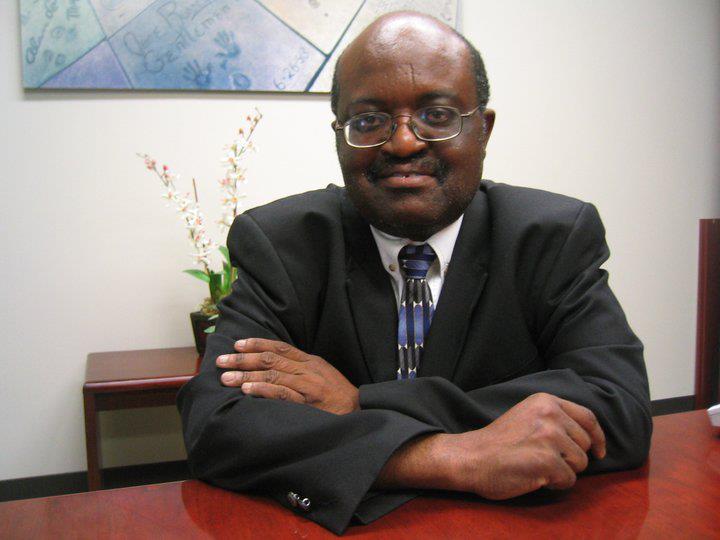 Los Angeles, CA
Los Angeles, CA
Saturday February 3, 2018-
Friends and family from all over the world gathered at the Church on the Way, West campus in Van Nuys California to bid farewell to the “Smartest Man Alive” Engr. Chike Okechukwu Nwasike who went to be with the Lord on January 20, 2018. In his eulogy- the officiating Pastor talked about the virtuous life that Chike lived in the service of God and man and praised his commitment and dedication to his family
In a Life and Times tribute, Publisher Chike Nweke wrote – Chike Nwasike was a very deep and compelling personality.
You couldn’t miss his sharp intellectual bent, his candor, his wit, his engaging sense of humour and his thorough understanding of just about any subject matter when he was in a room.
A consummate professional , he scored many firsts in chosen profession- software engineering. From his days in Mobil Corporation to his founding the Novantus Corporation in 1999 as a vehicle to building complex softwares to solve a myriad of problems in the developed economies and in the developing world. It will be difficult to find a replacement for Chike’s large personae.
We send our deep condolences to his widow- Noni and his three amazing children. We also commiserate with our friend Kenneth Emeka Nwabueze- his brother in law, confidant and bosom friend on this irreparable loss.
We leave you & console you with this verse from Job 1: 21 in the good book- “The Lord gave and the Lord has taken away; may the name of the Lord be praised.”
We have this blessed assurance that Chike Okechukwu Nwasike- Ezenwa Ochili Ogidi is resting in the bosom of our heavenly father with no more earthly pain or worries..and we will be reunited with him one day in the heavens above.
The church service was followed by an elegant reception held at the Sportsmen Lodge Events Center , Chike will be interred to mother earth in Ogidi Anambra State, Nigeria on February 23, 2028
Click on link below for photo highlights of the ceremony
pix.sfly.com/cmf2bqrG
==========================================
Below is also an interview Chike gave to Ambrose Ehirim after the publication of his book ‘Mind games” in June 2013
Chike Nwasike And “Mind Games”: The Interview by Ambrose Ehirim
Chike Nwasike is a technology enterpreneur, a software executive and founder of several technology ventures. Hooking up with Chike in this exclusive interview, we spoke on a whole lot of interesting issues, and in particular, his debut novel “Mind Games: Mazi And The Far Side.” We talked about what got him into writing the novel and how he created the characters, his in-depth research on US intelligence and how he developed his interest, the Nigeria-Biafra War and what he sees as the future of African fiction, and lots more.
Excerpts:
Let’s start from who you are. Tell me a little bit about yourself.
I was born in Nigeria and grew up in Enugu. Enugu in the sixties was probably the best place a young child could grow up. My Dad ran the coal mining corporation which at the time was probably the major energy company of Nigeria, so I would say that I come from an engineering family to be precise and I had the idea early on to be involved in science or technology of some sort. I attended a primary school which was probably the very best school anywhere in the world. I am not joking. Looking back, I think the teachers took a lot of care to pass on to the kids a thirst for knowledge and creativity which for me has endured. I founded a software consulting firm and another software development firm both in Los Angeles with an R&D Division in India. Today, I am focused on new technology start-ups in Energy as well as in venture capital.
I read “Mind Games: Mazi And The Far Side.” It is fascinating, thorough in its plot, capturing the true essence of “war, conspiracy and love” as you put it. What had engineered this compelling story?
The primary reason is simply to entertain my readers. I had always wanted to write a war story but I wanted it to be forward looking, a feat that was a little contradictory since the civil war ended 43 years ago. I also wanted to show how Nigeria is a real part of the world not just some outpost somewhere out there. It is the abundant land albeit with lots of imperfect people. The book is nevertheless said to be optimistic while recognizing the tragedy of life in the last 50 years or so. I also wanted to show just how our traditions paint a rich tapestry. something to be desired by many. While we bemoan our political predicaments, the world is envious of our rich resources and energetic entrepreneurial citizenry. I hope that my readers will do a comparison between American life and Nigerian life. People are basically the same.
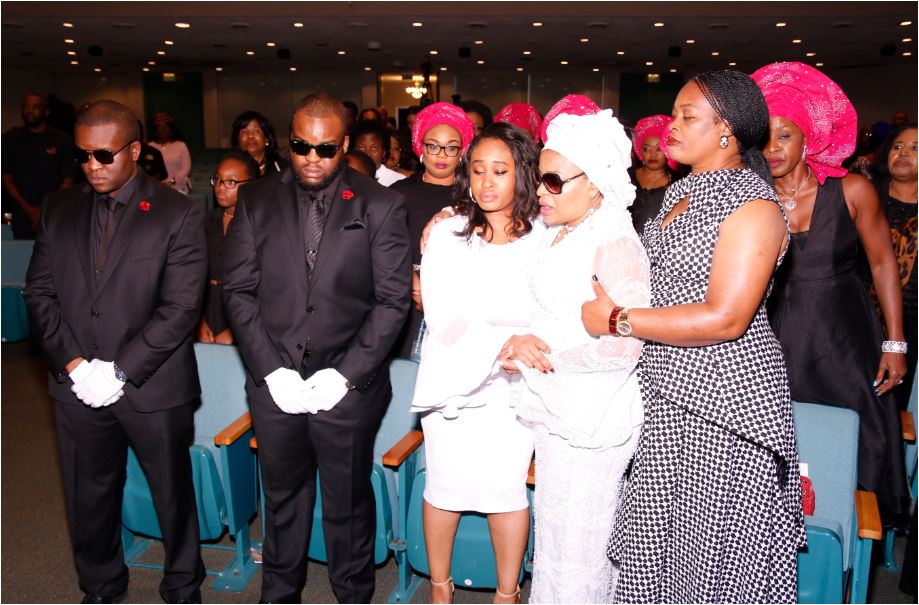 At what point did you conclude you must write this story ?
At what point did you conclude you must write this story ?
Some of the leaders on both sides of the civil war had passed on and many had no idea what life was like. The events from 1966 to 1970 are getting somewhat dim to many people especially the young who were not yet born. Thirty percent of the book is based on direct experience of the war but the effects of the war, the dislocation and enduring collateral damage continued for many years and is reflected in the peculiarities of the town Umu Achonam.
In your remarkable tales, I could visualize what combat is like. The Ali-Jacomah-Josiah Adeogun episode was in fact intriguing. For instance, the quest to kill all male “old enough to carry a weapon.” Were you recalling your own experiences or adapting what had happened in the “Asaba Massacre” we had known?
Yes, the massacre at Asaba stands as an indictment of the Federal policy and how they executed the war. No it was not my experience, I was 11 years old when the war began and 14 when it ended, but this was not just the experience in Asaba, it was quite common. I tried to stay faithful to the actual public events such as the battle of Abagana, the fears of the ordinary people and the conflicts among Nigerian soldiers many of whom were not necessarily enthused about the wholesale vendetta against the Igbos. I think it is rather silly to brand many Nigerian soldiers as war criminals. We would like to hear from many such honorable men who refused to obey illegal orders or who aided the innocent at the risk of their own safety. There has to be many who were conflicted, many were humane decent people. All men are imperfect and all men fail, but many are redeemed, many are forgiven and a few go to perdition. One of my editors remarked that no one in the book is a totally good person. Some of the corrupt people do good things when the occasion arises, some fail.
Growing up after the war and while in your academic pursuit, did you envision penning down such experiences by way of storytelling?
I did. I distinctly remember that when I left college many moons ago, I expected that I would write something about the war. I just did not know what the angle would be nor could I afford the time. I began to think more seriously about it after I discovered James Michener. No one can tell an epic tale like he did. Then I got involved in designing complex systems and I discovered that humans are the most complex of all systems out there. What’s better to write about than those kinds of systems?
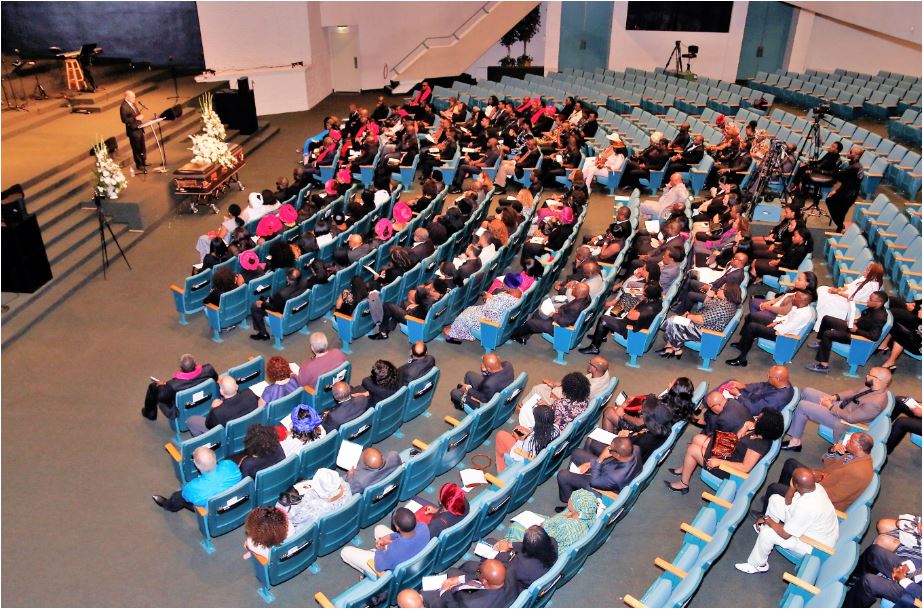 Why did it take you that long to write this novel?
Why did it take you that long to write this novel?
Life happens. We all get super busy and hardly have enough time to do some of the things we might enjoy doing. Writing is laborious and time consuming for me, especially if you build a plot and you restrict it by historical events. Everything has to fit in four dimensions, if you will. Every character has to react to type, so when, for example, a General is implicated in a coup, there has to be a long setup that makes it credible.
Let’s talk about the major character Jacob Makolisa in the novel. Was his ordeal throughout the novel the kind that you were familiar with or it just happened to be part of your thoughts with regards to the novel?
He’s the ordinary guy who suddenly discovers an extraordinary gift, but he goes through extraordinary sufferings too. Does his gift save him or does it not save him? That would be left to the reader to decide. I can’t say where that came from, but I work with people who go through a valley to come to a mountain. Makolisa is the worst case data point of every man and the best case data point of every success.
.
“Mind Games…” takes us into the South Central Los Angeles Riots of 1965 and here we are with Juanita Brown who as the story goes finds herself at the US Embassy in Lagos as Consular Officer. What were you trying to relate here?
Makolisa and Juanita have more in common than either one knows but I won’t ruin the story for any potential reader as this is part of the plot. The American life in the book is interspersed with the Nigerian life. People are remarkably similar
Samson Uwamaka was a typical Nigerian immigrant story when he had encountered Jacob Makolisa in the United States after the POW years during the war. Why was this important in the novel?
When you end a war, the victors get a parade. The Romans knew how to do this. They parade the booty of war and slaves captured in war to the din of a crowd. The vanquished get to mourn their loss and bury their dead. There is catharsis. In Nigeria we swept the war under a carpet and pretended that it did not happen. I believe there are many war wounds and many of the participants suffered in many ways. Uwamaka’s tragedy is there to show the devastation and collateral damage of war which can last for a generation or more. I think it was US General Patton who said that it was a good thing that war was so devastating else men would love it so.
On the war, many folks who had their education cut short when the war erupted and could not continue their education after the war on grounds of circumstances beyond their control. Today, the ones still alive feel abandoned by the Igbo leadership not recognizing their commitment to the cause. What’s your take on that?
We lost our innocence. History will judge us harshly concerning how we forgot the veteran, his children and his widow. What is equally bad is that we have not focused on growing the private sector which has the effect of creating lots of jobs for both the educated as well as the less educated amongst us. There is such a jostling for state funds for one project or the other and it just won’t do to improve the lives of everyone who needs gainful employment. If all you do is trade, you may make a lot of money, but you won’t be hiring lots of people. If you owned a plant or a factory, you could hire the entire village.
Let’s talk about post-war career in real terms. Some of the folks who fought in the war have been remarkably successful maybe because of their determination, ambition, and hard work learning from their military experiences that was positive. Some never recovered. Why isn’t there a connection between the two by way of help or otherwise as can obviously be seen at Oji River with the war veterans on the motorways panhandling?
We can do better for the veterans and their widows and their families. It has been forty some years now but it is not too late. It is a crying shame that our governments have not done something far more credible to take care of them. Men who fight together become brothers and you would think that successful veterans would reach out to their brothers. This is the responsibility of all Igbos for whom these men presented themselves to serve and protect. We ought to stand with them.
From the theme of “Mind Games: Mazi On The Far Side” why hasn’t there been a Biafran Museum to date with hands-on-displays, photo galleries of the most blood soaked event, weapons, uniforms, equipment, other artifacts, plus oral and written memoirs of eye witness accounts? What explains that?
I think it is the same old “covering up” of our recent history. The government may feel it would be divisive. This is nonsense of course. I meet a lot of young people who have no idea of the travails of our country in the first decade after independence. It was a missed opportunity to weld a more perfect union after the spilling of so much blood. You know that in the US, before the US civil war, if you met an American in Europe, they would introduce themselves to you as a Virginian or a New Yorker. After the civil war, they all became Americans. I wonder if our ongoing crisies of nationhood coukd have turned out differently if we had been honest about our past.
Who are your favorite writers?
Good question, they are many. I have to say Chinua Achebe, God rest his soul. I make sure I read one of his books at least once a year. A good book keeps on giving and I get a lot from his books every time I read it. I just re-read Arrow of God , easily the best , in my view. Also, I’ve been a fan of Michael Crichton. I like everything he’s written. He has the knack of writing interesting stories with a scientific tenor and making it easy to understand even for the most technophobic among us. The third great writer would be James Michener. Reading a Michener epic tale is like taking a stereophonic history class.
Reading Mind Games, you get the impression that some of the events actually happened. How much of it is real and how much is fiction?
The public events are real. The private events are fiction.
Okay, let me ask it a different way. Are the private events real but the names have been changed?
The private events are fiction. Nice try sir.
What kind of research did you do to write so well about US intelligence?
There’s a lot of great material in the public domain and a lot of fine material about the culture of intelligence operatives to draw from. The rest, you have to use your imagination.
You deal with brain science and intelligence and computers in Mind Games, is this something you had experience in or did you know anyone who had this experience?
I have always been interested in medicine and artificial intelligence. As an eighteen year old I had admissions to the medical schools in Manchester and Ibadan as well as Engineering school at UCLA. I had a difficult time making the choice not to go to medical school but my interest never waned. However I have kept track of current thinking in neuro research. The brain is a very efficient and complex processor with the capacity to store every single bit of information it is exposed to. As a software engineer for many years I have found that quite compatible with how engineers teach computers to store, organize and process information.
There’s are a lot of Nigerian and African writers making waves globally. What do you see as the future of African fiction?
That is not surprising from the country that gave us a Soyinka and an Achebe. Africa is filled with legion of talented creative people and the world wants to hear their stories. I think the future will be filled with a diverse group of writers coming from non traditional backgrounds and this will open up new fiction, new themes. Mind Games is an Adventure Action genre and there is going to be other types and I believe it will be refreshing to the world because we will be following the words of the Prophet Chinua Achebe. Africa will be telling it’s own story for a long, long time.
Thank you for your time and the privilege, Chike, and all the best!
My pleasure and thank you, Ambrose, for the opportunity.

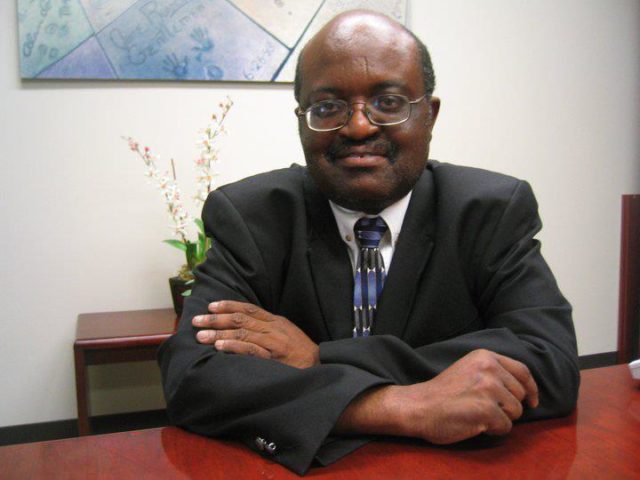
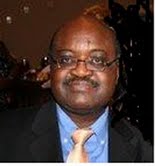







Moving tribute to an impressive life
Chike was truly a colossus
Beautiful article on this remarkable and brilliant man. Life And Times never disappoints.
Amazing interview of a great man!